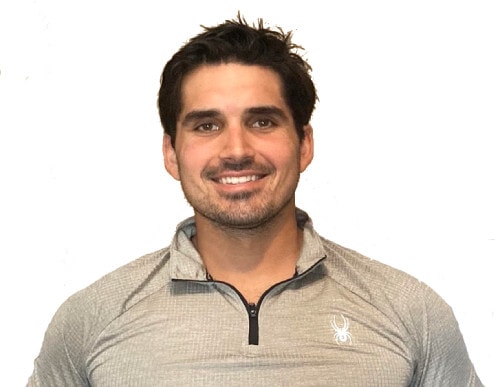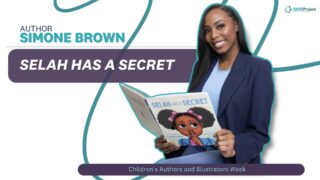My name is Sam Elliott. I’m originally from Kansas City, Missouri. I had a very normal childhood, as far as I can tell. I was a good kid. I was an alter boy. I played on sports teams. I was elected or chosen to be captain on a number of those sports teams.
In high school, my friends and I — along with a number of my peers — started to experiment with weed and alcohol. This in and of itself is not that abnormal, but we were in touch with a senior in high school, and he told me that you could look around for pain pills in your house and try one of those. I was probably 14 or 15 at the time. My brother recently had a surgery, there were some pills in the house, and I found them. I only took one, and I’ll never forget that experience for the rest of my life. Something happened when I took that pill that I can’t fully explain. All of my insecurities and all of my anxiety just melted away into this state of calm. I didn’t know what was going on; I just knew that I liked taking those pills. I took the rest of those, and then any chance I got to get more, I was all over it.
I still used weed and alcohol socially with a lot of my peers. It didn’t take very long for me to kind of get off the rails with some of that stuff, too, where I was drinking before school… but the opiate thing, because it wasn’t exactly socially acceptable, I wasn’t super vocal about that.
I also didn’t want to share any of that stuff with anybody. At the time, it still just didn’t feel that wrong because it was a prescription medication. I knew I wasn’t supposed to be doing it, obviously, but it’s not hard to see how I didn’t exactly consider myself a few steps away from being a “heroin junkie.” Up until that point, my understanding of addiction could basically be boiled down to, “a person with questionable morals tries an illicit substance; due to the highly addictive nature of that substance they get hooked; and then they lack the self discipline to quit.” That’s what I thought, and there are probably a lot of people who still feel that way about the issue.
What I’m hoping is that this story provides a different narrative. We can change the narrative on the social landscape one story at a time.


I was very secretive about my prescription painkiller use, and so I turned to the internet for a lot of questions that I had. There were forums and websites out there where I could learn from people who had been doing drugs for a long time, and they seemed to be relatively well-spoken and well-learned on topics. I got my hands on this one pill, a prescription called Dilaudid. It was common knowledge on the internet that if you get this and you took it orally, you were wasting it. And they’re expensive pills! A buddy I knew had some syringes, because he was trying steroids at the time. I was like, “hey man, can I get some of those?” It was just me in my bathroom and the internet learning how to shoot up prescription medication, and that’s where that line got crossed. Shortly after that, I started experiencing withdrawals. My life kind of took a weird turn there, in my senior year of high school.
It was right around graduation when I was doing all this and the alcohol was also becoming more of a problem. I was prescribed ADHD medication and I was abusing that with the alcohol. I also started to develop an eating disorder where I just had a very unhealthy relationship with food, which I’d ultimately seek treatment for.
I was about to go to college. I was still playing on sports team there in my senior year at high school, managing as best I could in secret just to keep my life intact. I got into the University of Arkansas where I was going to rush fraternity. It all kind of just spiraled from there. From freshman, sophomore, junior and the first half of senior year of college, I was basically just doing my best to get by while managing this horrible drug habit. My junior year of college was kind of my undoing, where I had access to the Dark Web. I was buying Bitcoin, and then I was able to get my hands on anything I wanted. And what was cheap? What was accessible? Fentanyl.
I had done heroin and pretty much everything I could get my hands on. I put a bunch of junk in my body and there wasn’t anything that was off limits anymore. I was kind of like a little scientist. I tried my best to keep everything under check, but a lot of times you’re going to fall out and it may be several days. You don’t even know what’s happened. It could have been 8 hours, it could have been 12 hours, and then you are just blacking out. This was when my life became very unmanageable. People started to notice, of course. And that brings me to my first treatment.
My grandfather passed away, and I went back to Kansas City, which is where my family was. It was very evident to them pretty much immediately that something was really wrong. I happened to do a little bit too much fentanyl, and I passed out in my basement. They found a syringe lying out, and so obviously that was a big deal. That was the day before the funeral. We got through the funeral, and then I had my first intervention. I basically talked my parents into believing, “I’m in college. I’ve still got my classes in check. I’m trying to keep all this under control. I just got to get back there and I’ll just kind of wean off and everything will be okay.” That’s really what I believed. So I went back. They let me go back, but I think they just didn’t know what to do. They had no education of the sort to understand how to deal with this situation. Neither did I. So I went back and I maybe got three or four more days before I finally went to the student health center, and found a counselor there. I was sweating profusely, shaking so bad. She wouldn’t even see me. She was like, “Look, I’m going to call an ambulance right now.”
I went to the hospital, and then my parents had a few days to do some research where they came down to get me and send me up to my first rehabilitation center up in Minnesota. This was strange to me, because the narrative that I understood about how addiction worked at the time — which I know now is so wrong, but that was still forefront in my head — was, “I don’t belong in a rehab center, man. You’re sending me to this place? These people are junkies. That’s not me. I’m an athlete. I’m a scholar.” All this and I was injecting fentanyl.
At check-in, they sat me down trying to impress on me the gravity of the situation. Up until that point, I was still thinking, “I can quit if I want to. I just need the right push.” They told me, no, this is really serious, and your chances of survival if you don’t quit are very small. Your chances of success, even if you try to quit now, are even smaller. I didn’t really have a choice at that point.
There was one kid that was on the same unit as me in treatment, and I’ll never forget him. His name was Ryan, and he was a good looking and smart kid. He was super good at basketball, and he was also “a junkie.” He was doing the same drugs as me! I couldn’t believe it. That was the first person that I’d ever met who really shattered my idea of what addiction was. And there were tons of people like that in the treatment center, but this guy just stands out. I said, “You’re an athlete. How did you get into this stuff?” Meanwhile, we have the same story. I just couldn’t even believe it. I guess I thought I was a unicorn in the whole thing. It was this eye opening experience that addiction doesn’t discriminate; socioeconomic background doesn’t matter. I didn’t know it at the time, but that was a big lesson.
I went through that treatment. I thought I was doing my best. I was anxious to get out of there, obviously, and I just still didn’t totally understand how much of a grip this whole thing would have on me. I kind of put on a show in there. I didn’t think that’s what I was doing, but I was putting on a show and I got out quickly and I went into a residential treatment facility there in Minnesota. I got a job, and as soon as I got paid, I relapsed. I didn’t think that’s what was going to happen, but that’s exactly what happened.
While living there, I found another guy who liked the same drugs that I did, who was also using, and then we started doing that together. We never did get caught, so we graduated the program and went our separate ways. He went back to Chicago and I went back to Kansas City, and we were just going to try and figure it out.
There’s a reason that I mention him because he’s important later on, but I went to Kansas City and moved into a halfway house. I tried to be sober a little bit, but it really didn’t take long. I was going to try some controlled drinking and then I was going to try this, that, and ultimately I found a little bit of opiates on the floor of my car, via a cotton that I had used to filter out for injecting. I took that cotton off the car floor and soaked it in water and shot that into my vein. I got something called cotton fever, which is like being septic. Cotton fever is like the worst flu you’ve ever had and it happens instantly. I didn’t just give it to myself once off that cotton; I continued to do it until there was nothing left in there that was going to make me feel any kind of way. So I got myself sick for days and then ordered more drugs, of course.
Now my use was extremely destructive, even worse than before. I was shooting up while driving down the highway, and I was blacking out in neighborhoods. I’d have my car up in somebody’s yard, somebody would come out yelling, and I’m like, “I just fell asleep at the wheel,” all the while trying to figure out what the hell had happened and drive away.
Eventually I got kicked out of the halfway house. I had a choice to either be homeless or to get honest with my family again. Fortunately, I got honest with them.
They got me into another treatment center. Shortly after that, my buddy that I used with back in rehab was found dead. I was told that they just found him under a bridge with nothing. So it’s really easy for me to see how if I get kicked out of the halfway house, and then if I don’t choose to get honest with my family, that’s me and I’m dead. He died, and that shook me up pretty bad, but that was a huge part of me really committing to getting all this right.
This new treatment program was there in Kansas City, it was for young people, and their whole thing was that you had to learn how to have fun in other ways, because you have to replace what you were doing with something else. We worked the steps too, but learning how to have fun without drugs and alcohol was as important as working the 12 steps.
The first year was really hard. I had crippling anxiety and couldn’t sleep, but eventually I just kind of got it, and my life mellowed out. Through the work of the steps and the fellowship and all the great connections that I’ve made along the way, it has just completely transformed my life.
Getting sober for me was finding something to replace my drug use, so I fell in love with being outdoors. I fell in love with physical exertion. It started with skateboarding, then rock climbing, and then now endurance sports. Running led to biking, led to triathlon, and I just keep going.
I love every day, and I love every step of it. My life today is fantastic. It’s so hard to believe who that person was and to even identify with the feelings back then because things are just so drastically different now.”

My parents did a really excellent job of getting involved in the recovery community. We’ve done some speaking engagements together where my mom was up on stage and I was up on stage and telling both sides of the story. My parents have been able to find a ton of healing in Al-Anon and other recovery groups. I think that without that, this whole episode might still be kind of a “dark stain” on my family, but because of the hard work that they’ve done in their own lives and in their own recoveries from all of this trauma, I think it’s actually brightened their lives. I’ll never be able to make up for some of the things that they went through, but it’s not all negative on that side either.

Tulsa Ironman: May 21, 2023
Sam competed in support of SAFE Project during the Tulsa Ironman competition on May 21, 2023: the six year anniversary of Sam's recovery.


